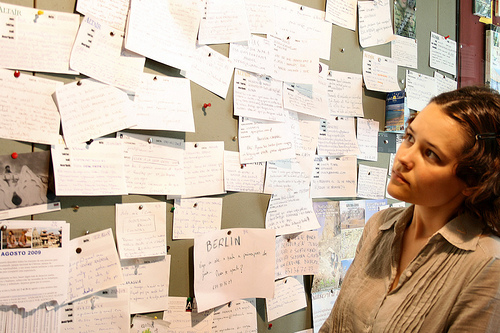Published on
Getting Student Writing Out Of The Trash Bin And Into The Digital Age

Developing job-ready skills does not need to be the primary focus of a university education in the liberal arts. A university education is of value, even if not primarily focused on making the transition to the working world. Even so, liberal arts undergraduate programs do offer students the chance to develop at least one valuable skill: writing.
However, universities are missing a seismic opportunity to help students develop their writing because they are failing to provide students with adequate feedback about their work and neglecting to take advantage of digital publication platforms that could help get students publicity and outside input for their writing.
Most courses require that each student submit a few papers every term, and it is probably a reasonable estimate that the average undergraduate student might hand in 15 papers a year. How much time do professors and TAs spend reading and marking these 15 papers? If I was asked to estimate the total number of hours that went into reading and marking my papers each year at school, I would be surprised if I needed to use both my hands to count. Make no mistake, that is a literal estimate.
But, with hundreds of students and crunched timeframes, the TAs and professors can’t be blamed. The resources simply are not there to give students adequate feedback. When it comes to getting feedback for your writing at the university level, bottlenecks aboud.
Because teacher feedback is sparse and often rushed, many students barely look over their returned papers, pausing only to register the grade obtained and then promptly moving on to their next endeavor. Any student who is anxiously awaiting their teacher’s insights is bound to be disappointed. So, if a tree falls in the forest and no one is around to hear it, does it make a sound? It is hard to imagine a method of grading that would result in less feedback and exposure for the author, or a method where student work was rendered more disposable.
In an age when posting material on the internet is inexpensive or free, post-secondary institutions have no excuse for not featuring student work online. I myself was never required to so much as access a message board online during my bachelor’s degree.
If arts faculties are interested in developing writers, as I feel they should be, they should be hosting and featuring student work. This could help solve the feedback problem by giving students an opportunity to discuss their work with one another online, potentially as a built-in part of the course curriculum. Or, classes could promote featured writers on their sites. Future job seekers could point to these links as proof of their writing prowess. By hosting student content online, universities could generate feedback for writers and get student writing out of the trash bin and into the public discourse.
Even if no changes are made to conventional liberal arts programs, people will still emerge from their studies better writers than when they went in. However, to be frank, when it comes to writing it would appear as though the most productive part of university is the rote aspect. Isn’t that exactly what post-secondary education is not supposed to be about? Schools need to end the feedback problem and put their best digital foot forward.
Author Perspective: Educator



